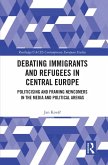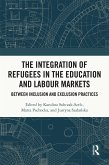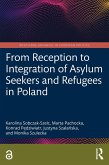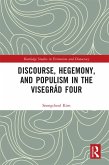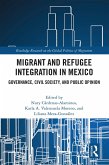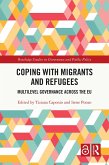Dieser Download kann aus rechtlichen Gründen nur mit Rechnungsadresse in A, B, BG, CY, CZ, D, DK, EW, E, FIN, F, GR, HR, H, IRL, I, LT, L, LR, M, NL, PL, P, R, S, SLO, SK ausgeliefert werden.
Hinweis: Dieser Artikel kann nur an eine deutsche Lieferadresse ausgeliefert werden.
Didier Ruedin, University of Neuchâtel
'Jan Kovar's book presents a superb study of the politicisation of immigration in Czechia and Slovakia around the refugee inflow of 2015-2016. The detailed examination of the salience, polarisation and framing of immigration in the media and parliamentary debates for two little-known cases decisively enriches our understanding of the political dynamics around immigration in Europe.'
Laura Morales, Sciences Po, Paris
'Debating Immigrants and Refugees in Central Europe is a valuable resource for anyone interested in media coverage of migration, news framing effects, and public attitudes to migration in Central Europe. It is an important contribution to our understanding of the politicization of migration in the region.'
Lenka Drazanová, European University Institute
'By studying Czechia and Slovakia, this book leads us to rethink the politicization of immigration and highlights the criticality of broadening the cases studied beyond the "usual suspects". Kovár provides innovative insights regarding the frames used in media and parliamentary arenas, while showing that context and focusing events matter. This book offers a solid foundation to understand the rising salience and polarisation of immigration in Central and Eastern Europe.'
Catherine Xhardez, Université de Montréal
'Kovár nuances how we think about the framing of different immigrants across Europe. His theoretical insights stem from almost 11,000 media and political items during 'routine' and 'crisis' times. Understanding how framing plays out in new contexts is crucial, as it carries long-term implications for migrants' safety and settlement.'
Victoria Finn, European University Institute
'Kovár's book is a significant and comprehensive case study on recent years portraying migrants in two Central and Eastern European countries, Czechia and Slovakia. The book can be used by students of immigration, policymakers, individual experts as well as anyone interested in the changes in CEE societies.'
Marta Pachocka, University of Warsaw



